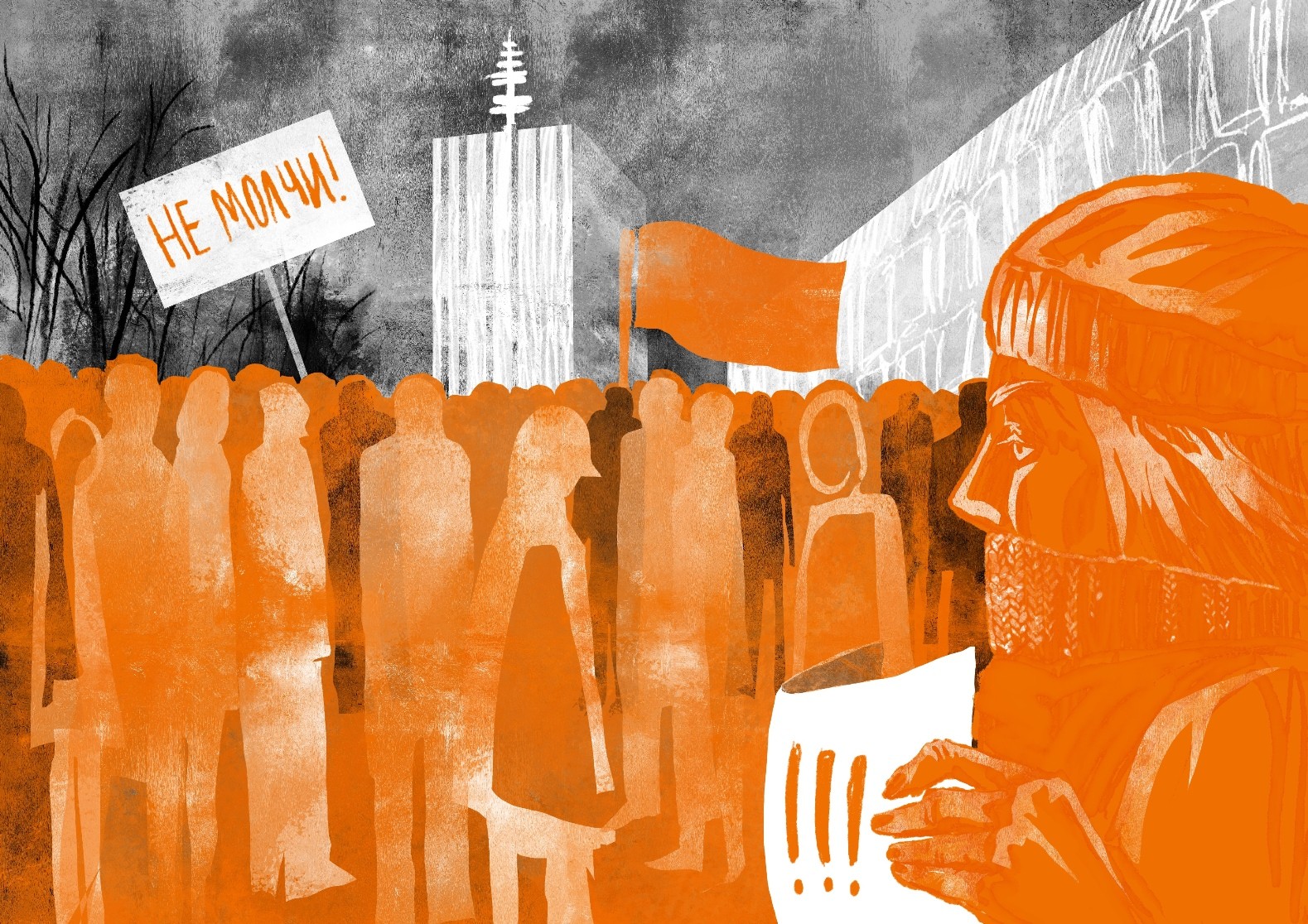
How the state crushed the protest movement in the Arkhangelsk region
Arkhangelsk is located on both banks of the Northern Dvina River, close to where it flows into the White Sea. The city’s population now stands at about 300,000. More than ten percent of them live in dilapidated housing, and this is only according to official figures.
The region became famous in 2018, when plans to build a landfill in the village of Shies gave rise to one of the largest protest movements in modern Russia. Thousands of residents took to the streets, while hundreds kept a round-the-clock watch at the proposed construction site.
“There was this crazy banging on the door at six in the morning. I come up, they say to me “There’s a fire!”, but there is no smoke. I’m in shock, I can’t think anything, and then they start breaking down the door…”
Olga Shkolina, a Shies protest activist, recounts how the police came to search her apartment after the start of the Russian invasion of Ukraine. It was March 23, 2022; on the same morning, searches were carried out at the homes of six more residents of Arkhangelsk associated with the protest movement. For example, the journalist Alexander Peskov.
“There were a lot of people: two witnesses, riot police, an investigator, a bunch of operatives and an expert,” the journalist says. “They began the interrogation right away. All of this was accompanied by some kind of sneers and insults. My girlfriend Dasha had a meltdown. I tried to calm her down – I said that it would all be over soon. And everyone started laughing their heads off. Then I went up to the guy who was laughing the loudest and asked: “Is it funny, faggot?”
“It was scary because you and your loved one are now perhaps seeing each other for the last time in the presence of these law enforcement agents,
– says Peskov’s girlfriend, journalist Daria Poryadina.
After the searches, everyone was taken to the Investigative Committee; activists heard how their friends and associates were interrogated. However, some of them stopped being friends after that, and the rest had to leave the country so as not to end up behind bars.
ADVERTISEMENT
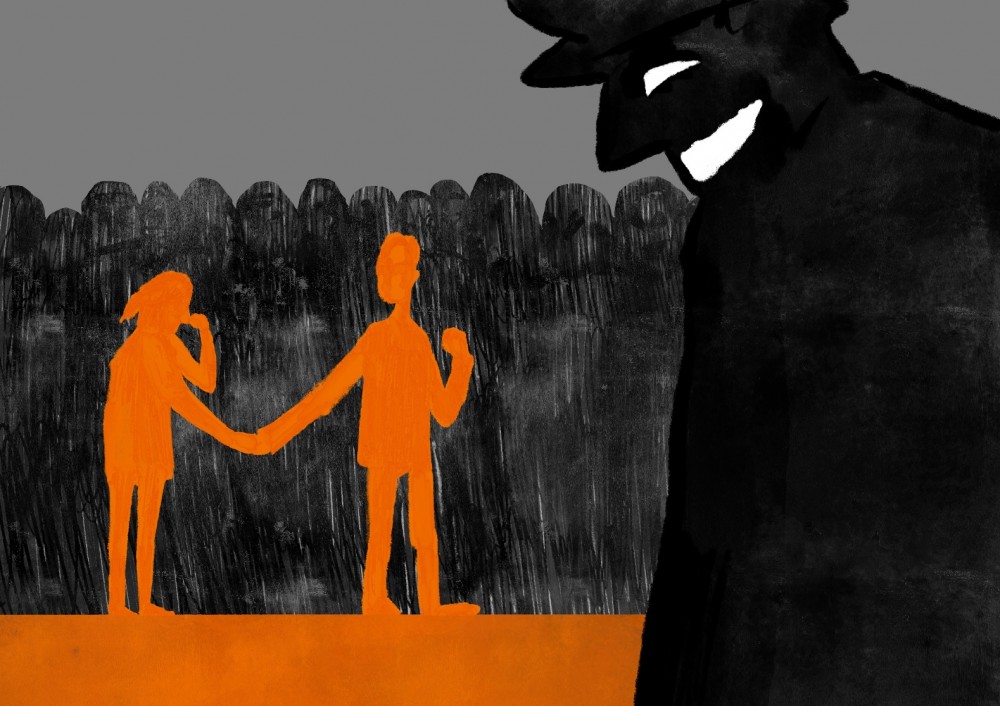
Denunciation as a tradition
In the center of Arkhangelsk, on the main square named after Lenin, there is a 24-story high-rise, which has become one of the symbols of the city. Every local has a photo taken in this place. Almost all rallies organized by local activists took place on this square. The place also saw numerous rallies of supporters of Alexei Navalny, who had an office in Arkhangelsk.
Borovikov was one of the first in Arkhangelsk on whom the security forces tried an extremely effective technique: denunciation. Borovikov ended up behind bars because of a local mover named Alexander Durynin. He initially came to Navalny’s office as a volunteer, but later allegedly became disillusioned with his ideas. He suddenly stopped working with the office, but he did recall the Rammstein clip posted many years ago on Borovikov’s page.
That same mover Durynin also appeared in the case of the head of the regional office of the PARNAS political party (Party of People’s Freedom founded in 1990), Yuri Shcherbachev, and Shies activist Yelena Kalinina. Shcherbachev was fined for “discrediting” the army because of his posts on the Russian social media platform Vkontakte. He later left Russia, requested political asylum in Norway and is now in Finland. Kalinina was fined 130,000 rubles for discrediting the Russian army.
Disclaimer: a co-author of this article, Olesya Krivtsova, is also one of its characters, as is her husband, Ilya Melkov. Olesya Krivtsova did not take part in writing the parts related to her or her husband.
The story of the Arkhangelsk student Olesya Krivtsova made headlines all over the world – she was criminally charged following denunciations of her fellow students. The students heatedly discussed in a private chat how to report Krivtsova’s anti-war posts to law enforcement agencies, and agreed that it would be best to complain to the FSB. “The denunciation is the duty of a patriot,” one of the young people said in the chat.
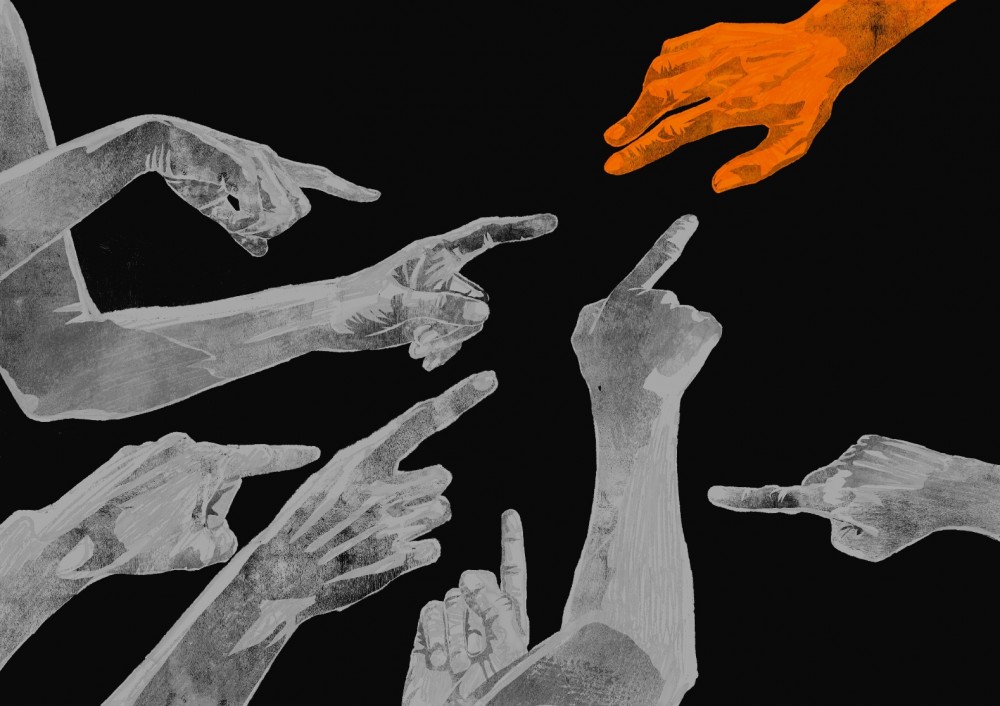
Cooperation with the investigation was not only of good will.
“If anyone hears, I want to talk so that people do not repeat our mistakes, so that people do not engage in extremist activities on the territory of the Russian Federation. Turn to God, work hard and do not drink much, because all the troubles are because of alcohol…”
These are the words of Yegor Butakov, a former coordinator of Navalny’s office in Arkhangelsk, in court in January 2023. He and another former coordinator, Elizaveta Bychkova, were charged with participation in an organization that infringes on people’s rights. They were sentenced to a year of restriction of freedom, a punishment that imposes some restrictions on the convict, but is not associated with either imprisonment or compulsory work.
Arkhangelsk activists attribute such a mild punishment to the fact that their former associates actively cooperated with the investigation. For example, Lilia Chanysheva, an activist of Navalny’s office in Ufa, who refused to cooperate with the security forces, received eight years in prison. Butakov, in order to save himself, testified against Chanysheva as well. In his testimony, the young man stated that the goal of the Anti-Corruption Foundation was “to destabilize the socio-political situation in the country.”
Butakov also testified against the Arkhangelsk photographer Ruslan Akhmetshin, who is now in a penal colony. The photographer went to prison for posts and comments about Victory Day. He wrote that May 9 is a day of mourning and sadness, and not an occasion for festivities; the investigation saw rehabilitation of Nazism in this.
“Now we already know that Yegor Butakov was broken by investigators and operatives and began to testify against everyone they asked,” says Alexander Peskov, a journalist from Arkhangelsk, who now lives in Vilnius. “He didn’t seem like a weak person, but based on the analysis of his behavior, based on the paperwork of the cases that I personally saw, I understand that the man was broken.”
The same fate apparently awaited Elizaveta Bychkova, another former coordinator of Navalny’s office in Arkhangelsk.
“Bychkova made a deal with the investigation, she gave the testimony that the investigator needed,” says Olga Shkolina, who participated in the Shies protest. “She did not really lie, but she said anything that could even remotely pass for a participation in an extremist organization. For example, once Navalny’s office needed a megaphone for a rally. I knew who might have one, and I said so. Sure enough I forgot about this episode; but Bychkova remembered it and told the investigators… The fact is that she was very easy to manipulate: she had a very serious illness, she was scheduled for a surgery.”
Dmitry, aka Denis: lover of apologies
“He came into my apartment in a black leather jacket, black pants and a black knitted hat,” recalls Olesya. “Where is the printer?”, the first thing he asked, standing in the corridor. Then he demanded I get ready and brought me to the police station. There he tried to intimidate me: if I didn’t repent, my mother would be fired, my family would have problems, and I myself would be criminally prosecuted. To avoid all this, he offered to apologize on camera and write a “confession”, says the girl.
The second time Denis appeared before Olesya in December, when the police came to her with a search in a criminal case. During the search, a security officer loomed over the girl lying on the floor with a sledgehammer, and an FSB officer explained that this was a “hello” from the Wagner private military company.
Olesya believes that it was Denis who framed her in order to put her under arrest. Somebody bought train tickets in her name, which allegedly proved her intention to hide from the investigation. Krivtsova did not buy any tickets, and she could not do this either – a page was missing from her passport. Later it turned out that the train tickets were bought for cash by an “unidentified person”. Krivtsova is sure that Denis did it. As a result, the girl was put under house arrest.
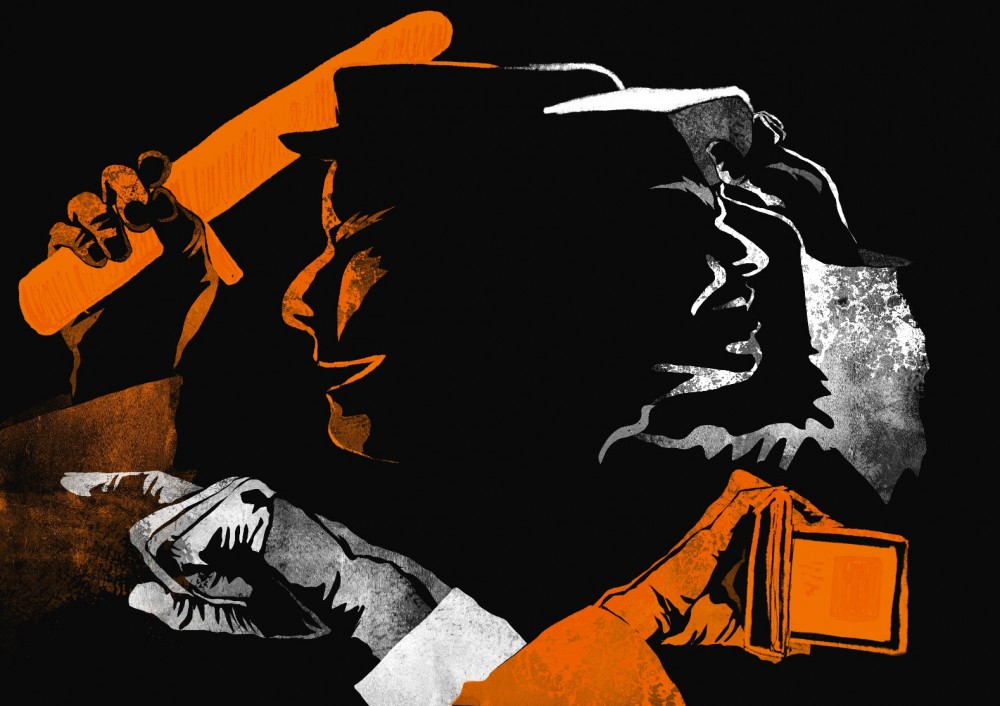
Activists who dealt with the law enforcement official are convinced that he is lying about his name and position. He calls himself Denis, but his colleagues refer to him by the name “Dima”. He flashes a police ID, but features as officer of the regional FSB D.N. Fedotov in Krivtsova’s criminal case paperwork.
Olesya Krivtsova’s mother, Natalya, believes that the FSB officer persecuting the activists is not quite sane.
“When Olesya was being led in handcuffs he ran ahead literally jumping and, rubbing his hands, told me: “Now, this will be interesting.” How can a sane person say such a thing, seeing a heartbroken mother?” asks Natalya. “It’s like a game for him.”
“I had a feeling that he was sick with something. He gave me chills,” says Arkhangelsk activist Ilya Leshukov, who also happened to meet “Denis”. “He was not aggressive, but was talking nonsense about “Ukronazis”. This is a real professional deformation.”
“He hinted, you are now a witness, but if you want, we can change it to suspect. And that means police custody. I had to agree,” says the young man.
Ilya says that the man sent both the text of the apology and the video to someone “upstairs” several times before the final version was agreed upon.
Later Leshukov left the country. He is now in Georgia.
Activist Yulia Chapurina also got to meet the mysterious officer. Chapurina was repeatedly given citations for participating in “illegal” rallies against the landfill and in support of Alexei Navalny. After the outbreak of the war they began to fine her for anti-war protests, and in October she was criminally charged with discrediting the army. It was this man who detained the girl; at the police station, he told Yulia that her charge could easily be changed to a more serious one if she did not agree to cooperate. But he promised that the case would be treated differently if Chapurina recorded a video message calling for the killing of Ukrainians.
“I immediately refused. Maybe this was his way of joking…” Julia recalls. As a result, the activist got a 130,000 ruble fine. She is now in Russia.
Apologies as a trend
Apologizing on camera is a common humiliating practice that was once adopted by the head of Chechnya, Ramzan Kadyrov, and then picked up throughout Russia. However, this is not typical for the northern regions – with Arkhangelsk being the exception, again.
SOTA journalist Alexander Peskov was forced to apologize on camera because of the word “faggot”, which Peskov used to describe one of the officers during his search.
“An operative came to the interrogation at the Investigative Committee and said “You insulted an officer, so let’s make a video, and there will be no charges. Say that you are for the war and that you’re against Navalny,” Peskov said.
“I said on camera that I express my support to all political prisoners and everyone who continues to fight for the beautiful Russia of the future, and I think that evil will lose. The operative just freaked out and ran away,”
This “apology” was not published. But on the web you can find a video featuring another young resident of the Arkhangelsk region, Yegor Rochev, who now lives in Arkhangelsk. It all started with Rochev posting a video where he, apparently drunk, says to the camera: “Glory to Ukraine, glory to the nation, f**k the Russian Federation.” Where and when this video was filmed is unknown. However on January 10, another video appeared in the “Interesting Arkhangelsk” social media group. The young man sits in some office, holding his hands behind his back, and apologizes for his actions.
The Barents Observer contacted Yegor Rochev but he declined to comment and said he did not remember anything.
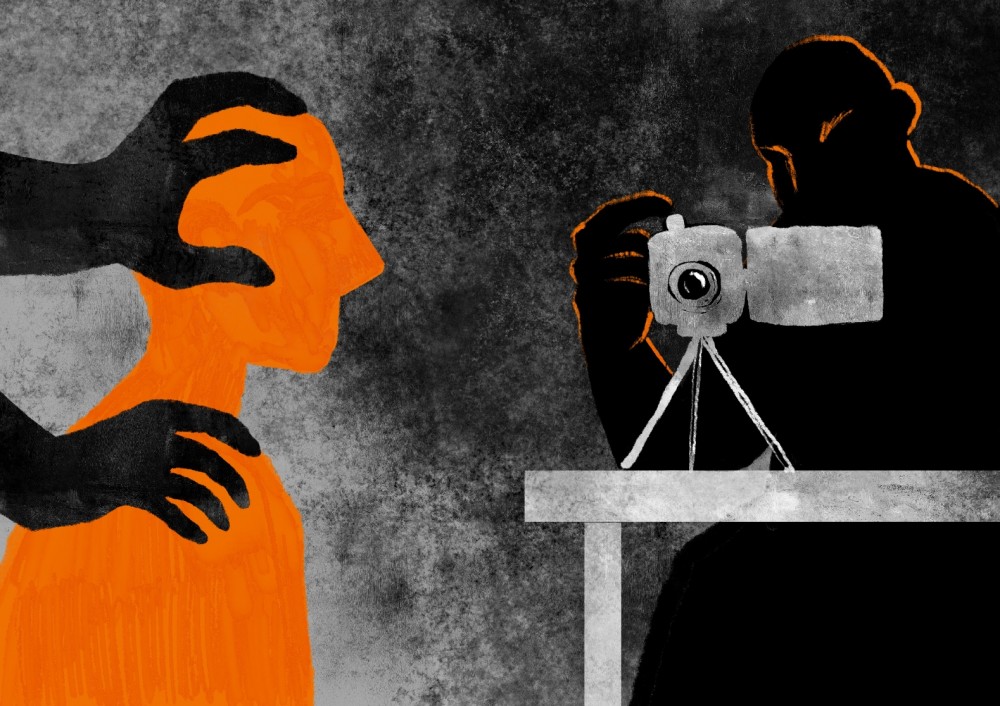
“Put on the straight and narrow”
On the Northern Dvina Embankment rises a white 1930s building of Northern Arctic Federal University (NarFU). The columns of the Stalinist architecture give a sense of significance – this is the largest university in the region. NArFU is known for its student expeditions to the Arctic.
But with the outbreak of a full-scale war in Ukraine, the educational institution began to be used as a repressive tool: students who participated in anti-war protests or covered them in the media began to be expelled.
One of those who has been unable to graduate is the journalist Daria Poryadina. She left Russia after the searches in March 2022. At NArFU, she just had one exam to pass and defend her diploma, but she was not allowed to do this.
Poryadina explained in an interview with The Barents Observer that the procedure for taking online exams at the university has been perfected: this is how exams were taken during the COVID-19 pandemic.
Daria applied for academic leave. But even this was denied to her.
“After some time, two people told me independently of each other that FSB officers showed up at the university and bluntly stated: I cannot be allowed to receive my diploma.”
– Poryadina says. After a while, she was expelled from NArFU.
Ilya Melkov, the husband of Olesya Krivtsova, did not receive his diploma either. He studied at NArFU in his last year at the Faculty of History, but left Russia after his wife.
“I was expelled on June 15th. Before that, I asked NArFU to give me an academic leave, but I was refused, allegedly because it was not justified. However, I consider the criminal prosecution of my wife and our separation a sufficient reason,” says Melkov.
“After the searches, I was summoned to the management “to put me on the straight and narrow.” Surprisingly, the conversation was quite good, they didn’t threaten with expulsion. Like, if you are protesting, do it, but less, please, because we won’t be able to defend you for a long time, ”
– Leshukov said.
After leaving Russia, the activist applied for academic leave, which NArFU refused. Ilya wrote an application for expulsion of his own free will, but a few days later he received an answer that he had already been expelled. This means that Leshukov will not be able to get reinstated on government-financed education in the future.
In January, Olesya Krivtsova was placed under house arrest. She did not stop trying to go on academic leave, but NArFU demanded that she either come to the university in person or send documents by e-mail. She could not do either because of the injunction. Krivtsova asked the investigator to allow her to go to the university, but he didn’t.
In June 2023, Olesya found out about her expulsion; by that time she was already in Norway.
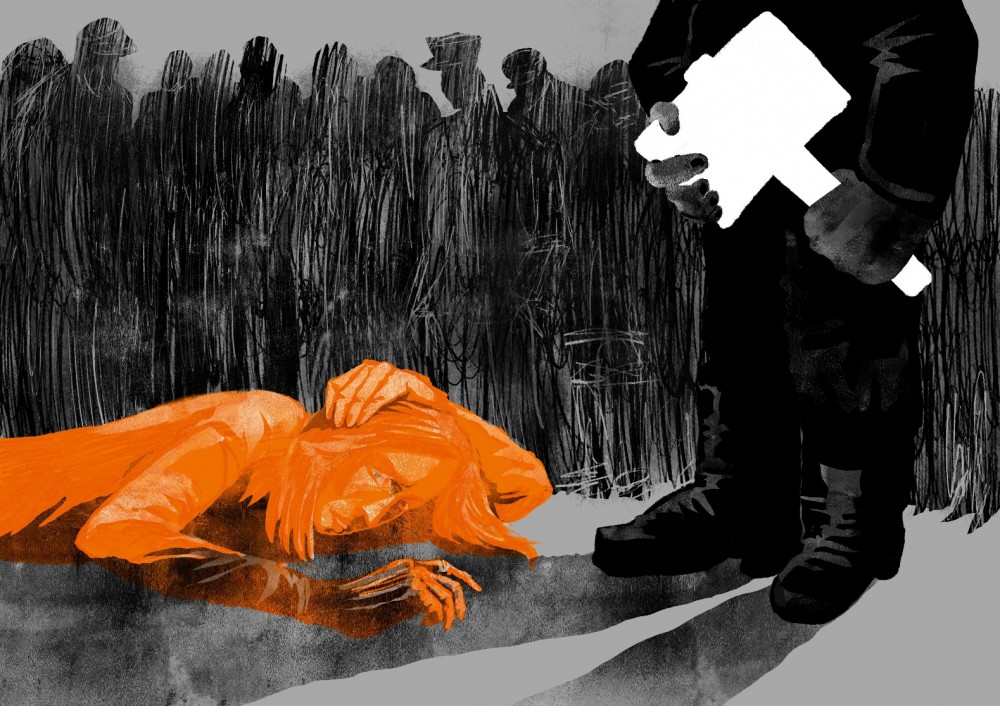
People are expelled not only from universities. For example, civil activist Andrey Kichev was in his last year at the Arkhangelsk Waterways Technical School but refused to attend the propagandist “Conversations about the Important”. In September, Kichev was detained at a rally against mobilization, where he worked as a journalist for RusNews, and was charged with “discrediting the army.” After some time, the director of the school called the young man and informed him of his expulsion.
SOTA journalist Alexander Peskov faced administrative pressure through the university even before it became mainstream. He was expelled from the medical university in 2018, at that time he was the coordinator of Navalny’s regional office.
“When I applied for reinstatement in August of the same year, I was told that I had been engaged in political activities on the campus of the university, so I do not have the right to be reinstated,” the journalist said in an interview with The Barents Observer.
The people in this article could have avoided expulsion by going on academic leave, but they were not given such an opportunity. SOTA journalist Daria Poryadina emphasizes that in practice, getting an academic leave is as easy as shelling peas. It is easily given to those who do not have time to study because of part-time jobs or are simply tired – but is denied to those who have come under persecution by the authorities.
“At first, I could not believe that my expulsion could be tied to pressure from the FSB. But after the FSB came to NArFU and arranged “meets” with students right at the university, and the management turned a blind eye to this, after all this, the puzzle was completed,” says Daria Poryadina.
The meeting place cannot be changed
The “meets” that the journalist is talking about are another way for the Arkhangelsk university to interact with the security forces. One of the victims of these scheme was the history student Ilya Melkov, the husband of Olesya Krivtsova.
Melkov was invited to the university in December, ostensibly to talk with his professor. However, a completely different person was waiting for him in the office. It was an FSB officer named Denis, the one who was involved in Olesya Krivtsova’s case. Just to remind, she had been reported on by fellow students but her case turned out be high-profile that these people found themselves in the center of public attention, and the state decided to protect them.
“He asked me to say to the camera that I don’t consider students, who are talked about on the Internet as informers, informers,” Ilya says. “At first I said that I would not speak. But I was still scared, so the video was recorded. We made up the text together with the officer. I said that there was no reliable information about denunciations, that there was no need to show any aggression towards these people, let the law enforcement agencies deal with it.
The university did the same thing with another student, Timofey Rezvy. This, though, was in the spring of 2021. Rezvy attracted the attention of the police with a comment on social media: he had some harsh words about taxi drivers from Central Asia. The rector’s assistant called Rezvy in but did not name the topic of the conversation. When the student arrived, he found a policeman in the office.
Draftsman in a police van
The Russian security forces already have experience of using the army as a punitive tool. For example, in 2019, FBK employee Ruslan Shaveddinov was kidnapped and, in a matter of hours, sent to Novaya Zemlya (this is also the Arkhangelsk region) to serve in the army. After the start of the war in Ukraine, the prospect of being in the army became a deadly threat. The security forces in the Arkhangelsk region decided to take advantage of this.
For example, activist Andrei Kichev was handed the military summons right during his detention at an anti-war rally in September. As he was taken to the police van, an officer of the military registration and enlistment office was already waiting there. The document stated that Kichev should report immediately to the assembly station, that is, even without passing a medical examination.
“I realized that they would either take me to the war right away or put me behind bars. Naturally, I had to flee urgently.”
– Kichev said. Now the young man is in Tbilisi, Georgia.
Olesya Krivtsova also spoke about army threats although in her case the target was her husband, and the source was the same FSB officer “Denis”. “When he tried to extract a confession from me after the search, he threatened that the summons was ready and my husband would go to war tomorrow,” says Olesya. At the time, Krivtsova’s husband was still a university student.
The Barents Observer asked NArFU for a comment on the expulsions and the organization of meetings between students and the security forces. We did no receive any response at the time of writing.
“You are a State Department lackey”
“The Ilyusha boy always felt that he was not like everyone else. But only after leaving the country he realized what kind of faggot he was :) PS In the photo, a womanish breast is visible even through a dark T-shirt. Maybe he’s already on hormones preparing to become Vasilisa :)”.
Similar offensive posts were posted on social media about Olesya Krivtsova, Olga Shkolina, Ilya Leshukov, Andrey Borovikov and others. The information campaign in the media and in social networks became an important part of the pressure on activists and journalists.
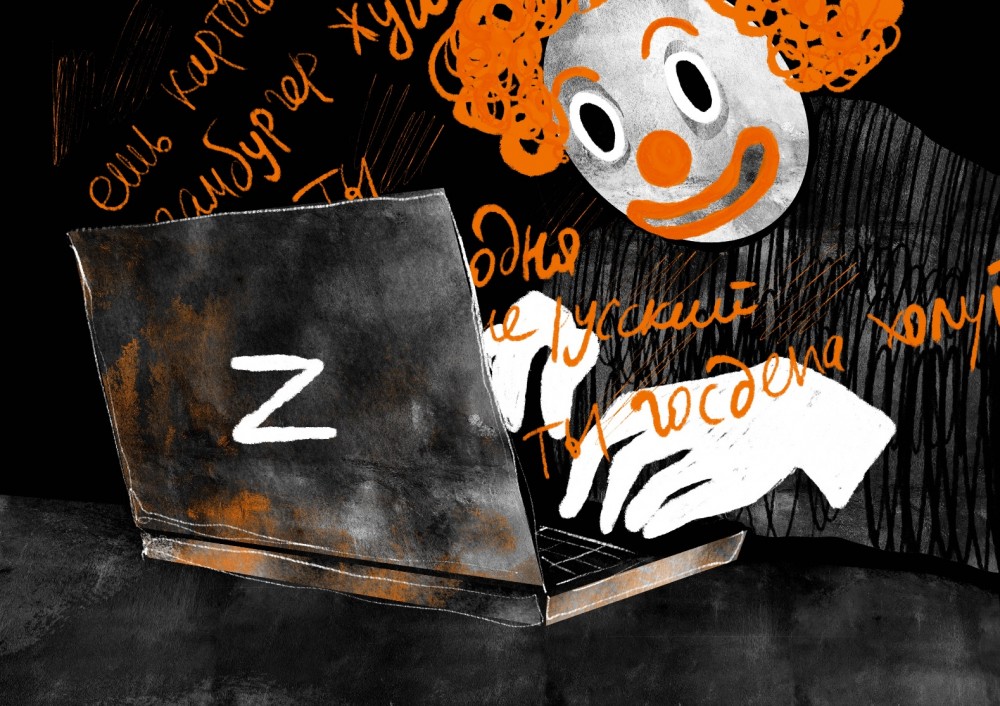
“Right after leaving I faced harassment in the local Arkhangelsk media,” says journalist Daria Poryadina. “They said that I was a traitor to the motherland, devouring khinkali in Georgia. They called me everything in these posts from being an author of posts about cats and dogs, and a flunker. Some insults were really offensive.
The harassment took place both on social media via “Pravda Pomorie Z” channel on Telegram and “Interesting Arkhangelsk” group on “Vkontakte” and in local news media. For example, the article in the local outlet Ekho severa (Echo of the North) mocked Olesya Krivtsova and activist Alexander Peskov for eating french fries at a McDonald’s in Lithuania:
Eat your potatoesGobble your burger
You are not Russian today
You’re a State Department lackey …
Another example is the coverage of Olesya Krivtsova’ trial by the state TV channel “GTRK Pomorie”, in which the reporter focuses on the presence of Western journalists in court rather than on the case. Another example of this kind is the article of the local “News 29” outlet:
“The mother of Olesya Krivtsova claimed in court that her daughter is a kind, decent and sympathetic person. However, what was missing from these confessions were the words about love for the homeland, for the country, for Russia. Probably, these concepts were foreign to this family,” said editor-in-chief Sergey Marinin. This man had previously cooperated with the FSB: he was used to obtain evidence against a corrupt official whom Marinin, together with his partner, intended to bribe.
Journalist Alexander Peskov believes that the social media groups used for harassment are supervised by the security forces. This is confirmed by the videos of apologies published there and photographs from the search of Olesya Krivtsova’s apartment: who else could this content come from if not from the people who produced it? Nevertheless, Peskov does not see a “systematic approach” in the media harassment of the opposition.
“They do have some idea-driven people who perceive the opposition as enemies of the people. They just enjoy doing it. I doubt that this work is paid,” says Peskov.
Shies trail
Activist Ilya Leshukov believes that the intensity with which the protest movement was smashed in the Arkhangelsk region is connected with Shies, when people were able to influence the authorities through protests. And in wartime any activity is dangerous: with thousands of young people dying at the front, ongoing mobilization, isolation of the country and sanctions pressure dissatisfaction with the regime intensifies.
“This is really a purely regional case. The victory of civil society in Shies still “backfires”, says Leshukov. “Orders to make a nightmare for show come from above, from Moscow. They believe that Arkhangelsk is still a protest region, a tinderbox that can explode.”
“Indeed, some things, for example, an apology on camera, were not typical for the northern regions before,” states human rights activist Alexei Kuroptev from Arkhangelsk, who now lives in Kirkenes, Norway. “But the state now has a big demand for repressions, for their toughening. And the goal is to discourage people from participating in anything.”
Faces of the protest
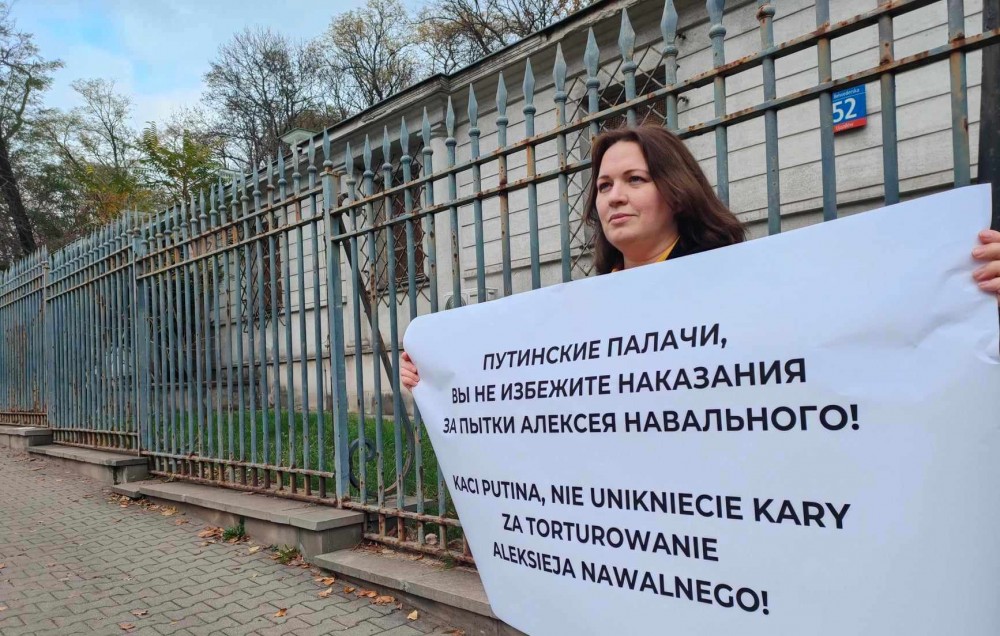
Shkolina participated in the Moscow March against Scoundrels in 2013 and was involved with Alexei Navalny’s office in Arkhangelsk and in a protest against the construction of a landfill in Shies. She was criminally charged for participating in a video in support of Alexei Navalny, who was detained after returning to Russia. Searches at Shkolina’s place were carried out after the start of the war with Ukraine. She was detained on March 23, along with Ilya Leshukov, Alexander Peskov, Daria Poryadina, Yegor Butakov, Ruslan Akhmetshin and Elizaveta Bychkova. Shkolina was charged with creating a non-profit organization that infringes on the rights of people, as well as inciting hatred or enmity. She left Russia in the summer of 2022 together with her teenage daughter and is now in Poland. Back to reading
Photo: privat
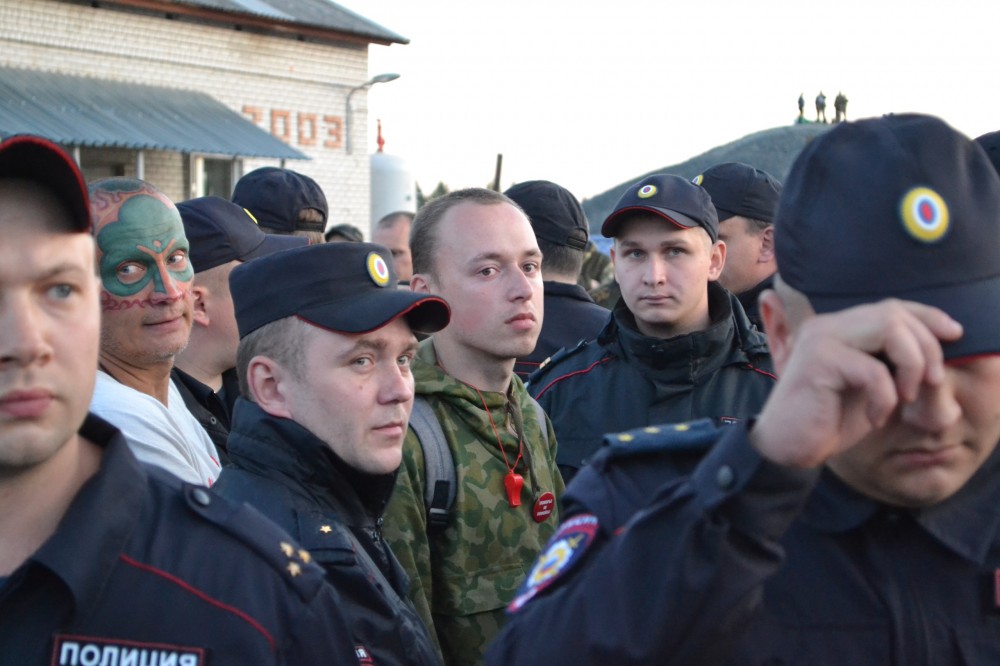
Peskov joined the protest movement in 2018 when he began to participate in rallies and help organize them. He joined Navalny’s regional office and later became its head. In September 2018, he was fined 400,000 rubles for organizing rallies against raising the retirement age.
He participated in protests against the construction of a landfill in Shies and was one of the creators the “Pomorie is not a garbage dump” public campaign. In 2019, he began to engage in journalism. After the start of Russia’s full-scale invasion of Ukraine he went to trials against anti-war activists as a public defender. On March 23, 2022, the apartment where he lived with his girlfriend Daria Poryadina was searched. Later, he was criminally charged with insulting a representative of the authorities. He left Russia and is now in Vilnius. Back to reading
Photo: Evgeny Serov
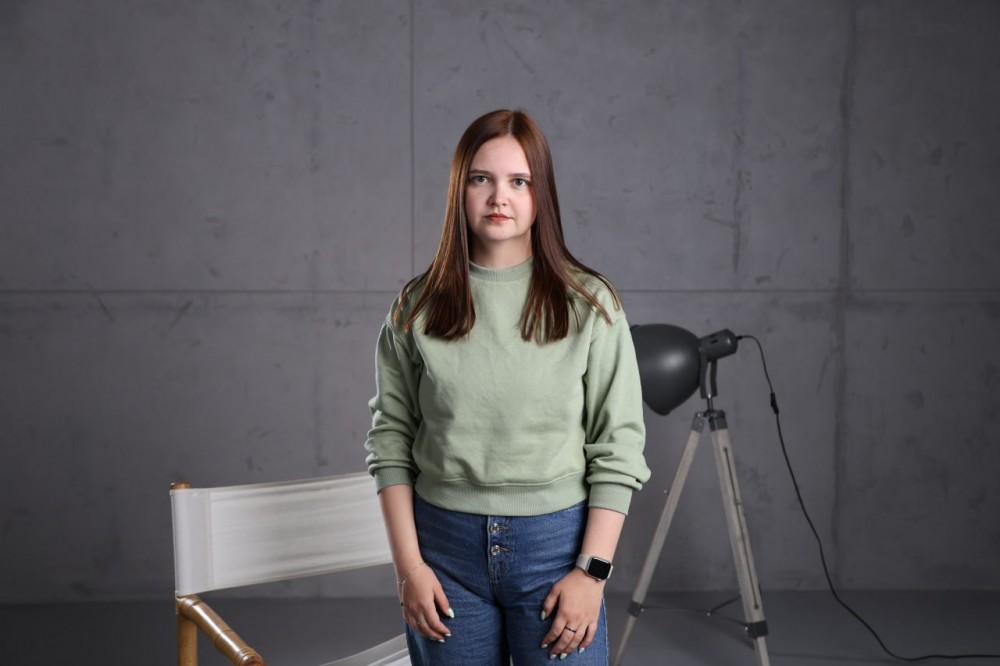
Poryadina started to engage in protest activities in 2018 and in the same year she entered NArFU to study journalism. In the fall of 2018, she began participating in protests against the landfill in Shies and joined the Yabloko political party. In 2020, she began working as a journalist for SOTA. She was mostly a straight A student at NArFU with the exception of just two exams where she got Bs. On March 22, 2022, the police came to search the apartment she lived in with her boyfriend Alexander Peskov. She and Peskov left Russia on March 27, 2022. Poryadina was denied to take a remote exam and academic leave. NArFU eventually expelled her yielding to pressure from the FSB. She now lives in Lithuania. Back to reading
Photo: Petr Ivanov
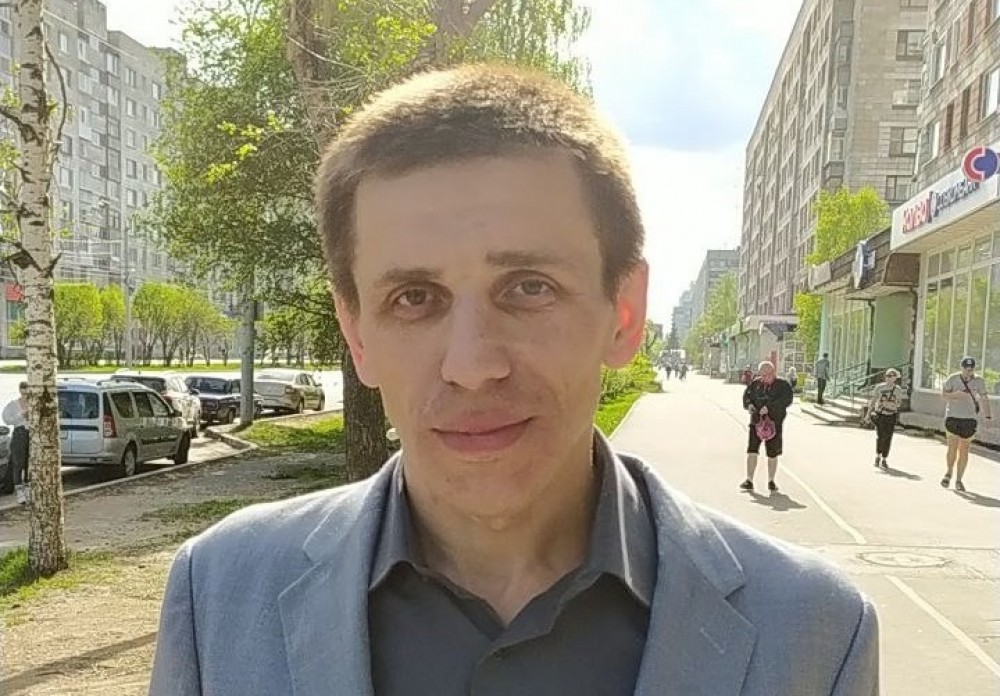
Borovikov was a Shies activist and a member of the “Pomorie is not a garbage dump” campaign. In 2018, he became the coordinator of Navalny’s Arkhangelsk office. In September 2019, he was tried under the “Dadin” article (repeated violation of the procedure for organizing mass events) and sentenced to 400 hours of compulsory work. On April 29, 2021, the court sentenced Borovikov to 2.5 years in prison on charges of distributing pornography for reposting a clip of the German band Rammstein. Later, his sentence was reduced due to the birth of a son. He served 2 years and 3 months in a general penal colony. Now he is in Russia. He is recognized as a political prisoner. Back to reading
Photo: Oleg Borovikov
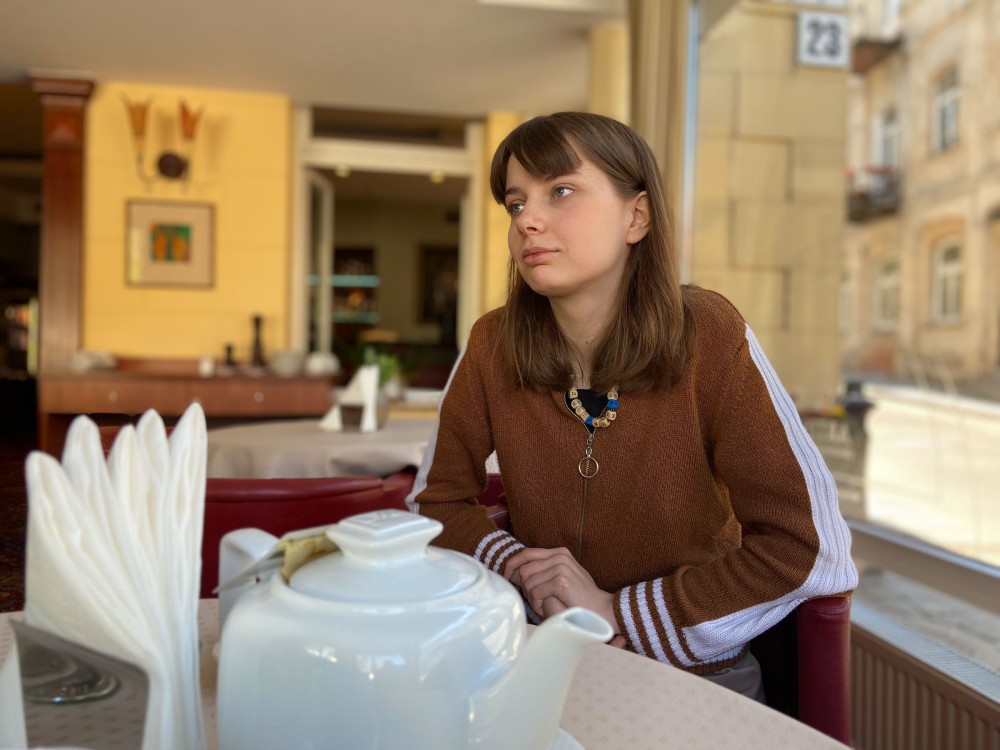
Krivtsova studied at NArFU. She was detained on May 10, 2022 and charged with “discrediting” the Russian army for distributing leaflets in which Krivtsova reminded that veterans of the Great Patriotic War also live in Ukraine. In December, she was criminally charged with discrediting the Russian army and justifying terrorism for her anti-war posts on social media. On these charges, Olesya Krivtsova faced up to ten years in prison. She fled from house arrest and was able to get to Lithuania with the help of human rights activists. She is now in Kirkenes, Norway. Back to reading
Photo: Thomas Nielsen
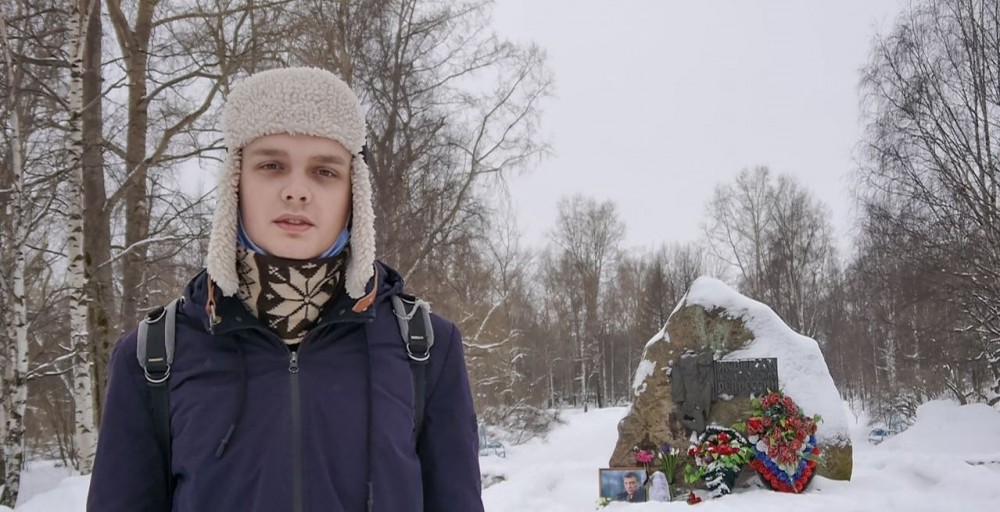
Butakov headed Navalny’s office in 2021. After mass searches on March 23, 2022, he became a suspect in the “FBK case”. He almost immediately began to cooperate with the investigation. Under pressure, he took part in denunciation of activist Ruslan Akhmetshin, the head of the Parnas party regional office Yuri Shcherbachev, as well as Lidia Chanysheva, coordinator of Navalny’s office, who was sentenced to 7.5 years in prison. On January 16, he was sentenced to a year of restriction of freedom under Article 239 of the Criminal Code of the Russian Federation. He is recognized as a political prisoner. Back to reading
Photo: Ruslan Akhmetshin
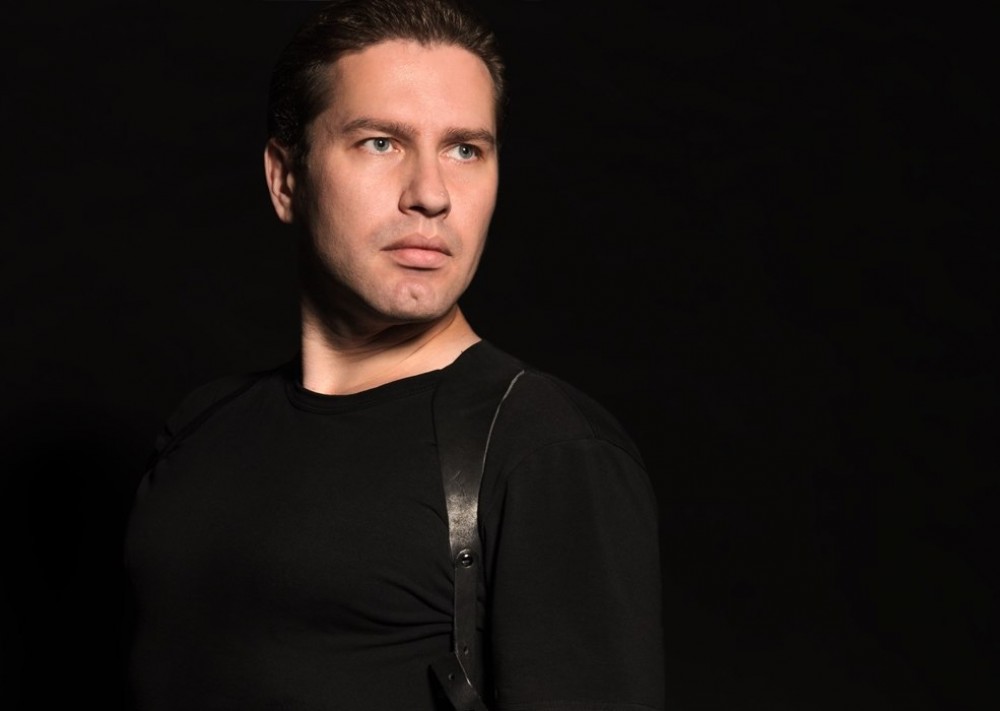
Akhmetshin worked as a cameraman at Navalny’s Arkhangelsk office and was a Shies activist. He was detained on March 5, 2022 following searches in his apartment and office and confiscation of his computer equipment. On March 23, 2022, Akhmetshin, along with other activists, underwent a second search in the case of “extremist organizations” of Alexei Navalny. In this criminal case, he was a witness. On May 9, 2022, Akhmetshin was detained at immigration control at Moscow Domodedovo Airport and taken into custody. On October 26, 2022, he received 2.5 years in a penal settlement: Akhmetshin was found guilty of rehabilitating Nazism for comments on social media where he quoted the writer Viktor Shenderovich and did not agree that May 9 is a day of mourning and sadness, not fun. Now he is in prison. He is recognized as a political prisoner. Back to reading
Photo from personal page
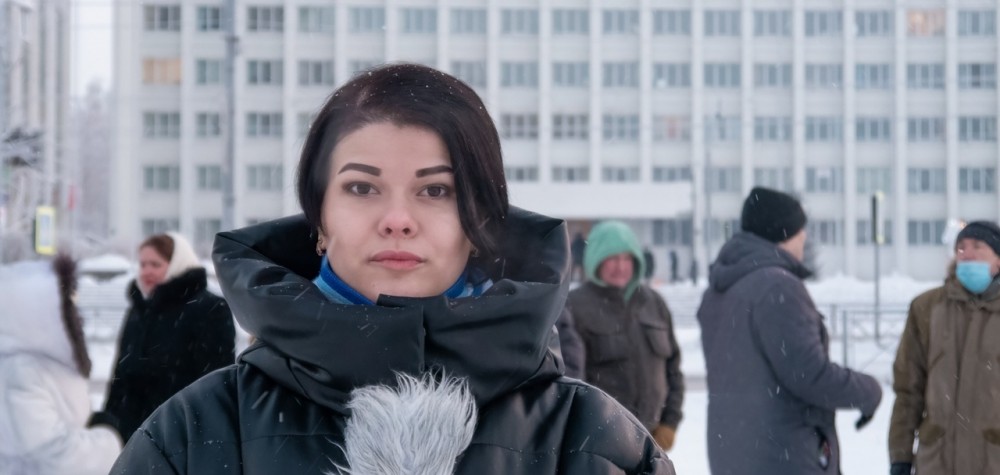
Bychkova became head of Navalny’s office in Arkhangelsk in 2020, succeeding Andrei Borovikov. After mass searches on March 23, 2022, she became a suspect in the “FBK case”. Almost immediately, she began to cooperate with the investigation, thanks to which the charges were downgraded. According to SOTA, Bychkova has a serious illness. On January 16, 2023, she was sentenced to a year of restriction of freedom under Article 239 of the Criminal Code of the Russian Federation. She is recognized as a political prisoner. Back to reading
Photo: Ruslan Akhmetshin
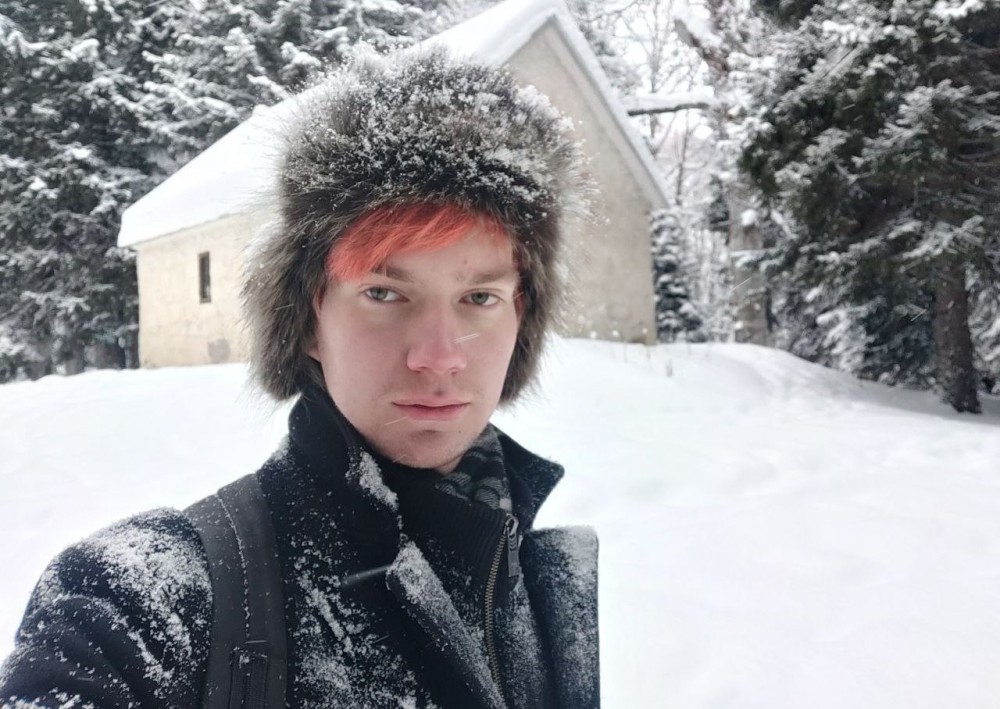
Leshukov got involved in protest activities in 2018: he went to rallies, organized protests, and was engaged in human rights advocacy. In 2022, after the outbreak of the war, he organized an anti-war protest. His first search took place on March 6, 2022: the security forces broke down Leshukov’s door and threatened him with criminal charges. FSB officer “Denis”/”Dmitry Nikolaevich” forced Leshukov to apologize on camera. The second search took place on March 22, 2022. On the same day, a video of Leshukov’s apology on camera appeared online. A campaign to harass Leshukov on social media began. He emigrated to Georgia at the end of March 2022 and now lives in Tbilisi. NArFU denied Leshukov an academic leave and later expelled him. Back to reading
Photo: private
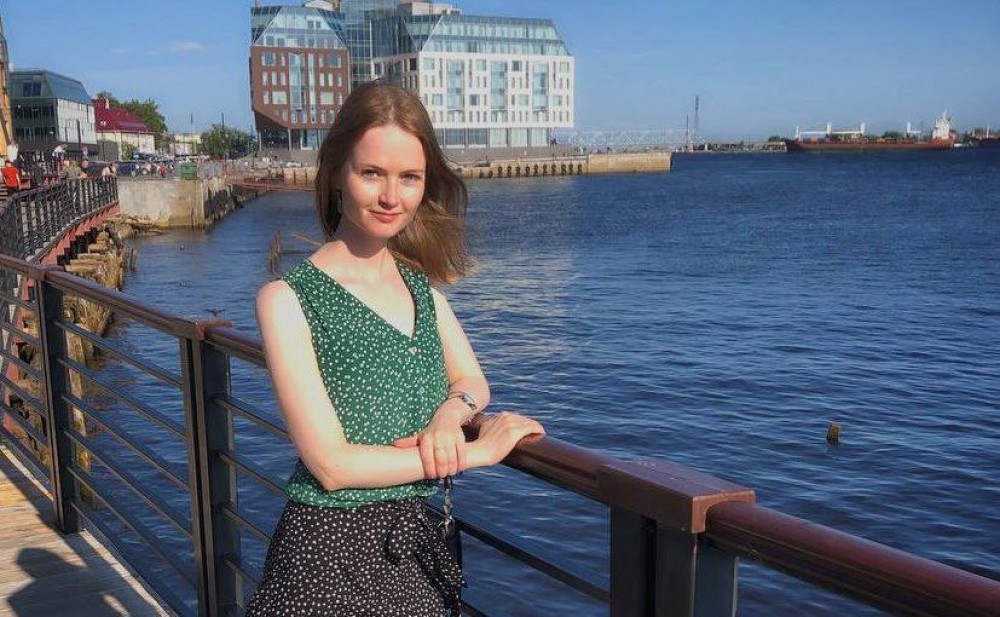
Chapurina is a Shies activist. She got involved in protest activities in 2018. She was fined twice for discrediting the army. She held one-person pickets and mini-performances and participated in events of the Feminist anti-war resistance. In 2022, she was criminally charged for the “repeated discrediting of the Russian army”. In 2023, she was fined 130,000 rubles. She remains in Russia. Back to reading
Photo: private
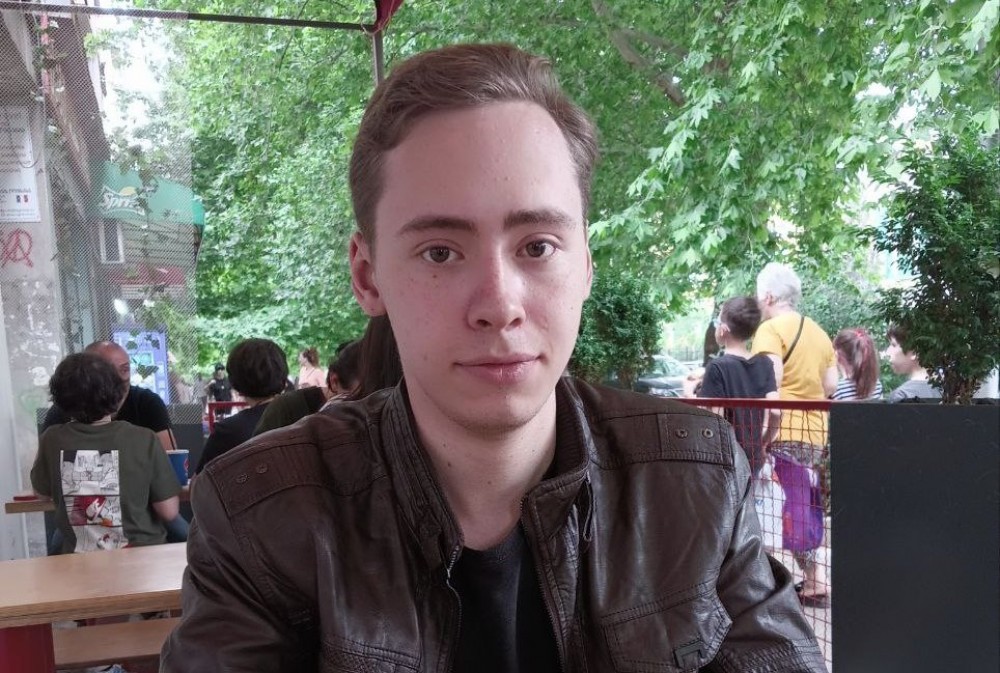
Kichev got involved in protest activity in 2020. He participated in rallies, held one-person pickets in support of Andrei Borovikov, as well as against the recognition of the Anti-Corruption Foundation as an extremist organization. In the summer of 2022, he began working as a journalist for RusNews. In September 2022, he was detained at a rally against mobilization he was covering and charged with “discrediting” the Russian army. At the rally, he was also given a summons to report straight to the military assembly station. A few days after the rally, Andrei was expelled from college. He emigrated to Georgia in October 2022. Back to reading
Photo: private
The Barents Observer Newsletter
After confirming you're a real person, you can write your email below and we include you to the subscription list.



